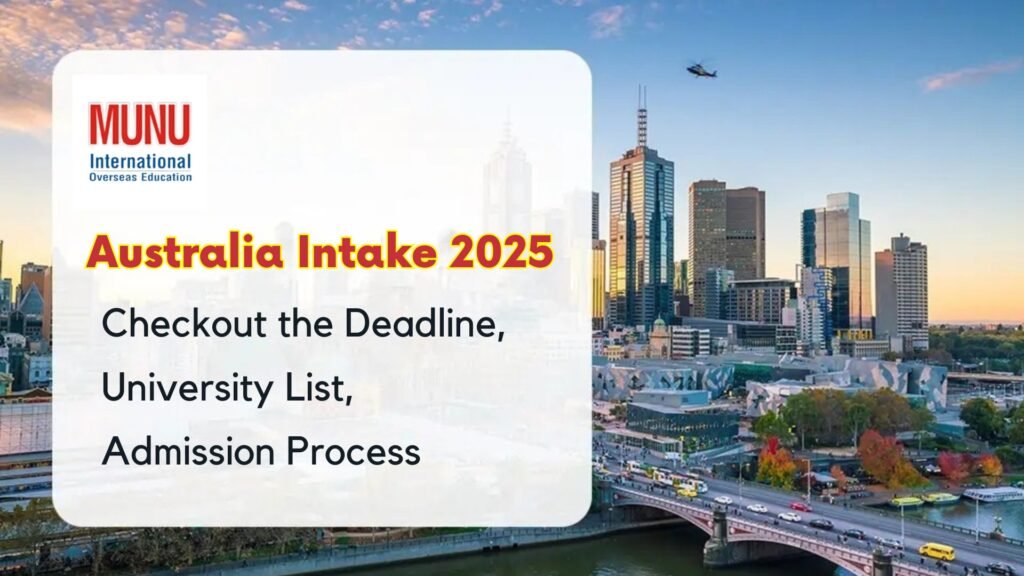Best Business Schools & Colleges in Germany 2025-2026

Best Business Schools & Colleges in Germany 2025-2026 Germany is renowned for its robust education system, particularly in business studies. As we look ahead to the 2025-2026 academic year, several institutions stand out for their exceptional programs, international orientation, and strong ties to industry. Here’s a comprehensive overview of the best business schools in Germany, alongside insights into the application process, visa procedures, and frequently asked questions. Best Business Schools in Germany 1. Mannheim Business School Overview: Mannheim Business School (MBS) is part of the University of Mannheim and is consistently ranked among the top business schools in Germany and Europe. Key Highlights: Accreditations: Triple-accredited by AACSB, AMBA, and EQUIS. Programs Offered: MBA, Executive MBA, Master in Management, Ph.D. International Orientation: Over 50% of MBA students are international. Industry Connections: Strong ties with leading companies like Daimler and SAP provide excellent networking opportunities. 2. ESMT Berlin Overview: The European School of Management and Technology (ESMT) Berlin is a top-tier business school known for its innovative approach and leadership training. Key Highlights: Accreditations: Also holds the prestigious Triple Crown accreditation. Programs Offered: MBA, Executive MBA, Master’s programs in various disciplines. Diverse Student Body: Attracts over 40% of students from outside Germany. Corporate Partnerships: Collaborates with major companies such as Google and McKinsey for internships and projects. 3. WHU – Otto Beisheim School of Management Overview: Otto Beisheim School of Management (WHU) is recognized for its academic rigor and focus on international business education. Key Highlights: Programs Offered: MBA, MSc in Management, MSc in Entrepreneurship. International Recognition: Strong emphasis on entrepreneurship and leadership. Alumni Network: Extensive network that aids career advancement. 4. Frankfurt School of Finance & Management Overview: Located in Frankfurt, Germany’s financial hub, this school specializes in finance and management education. Key Highlights: Programs Offered: MBA, Master in Finance, Master in Management. Industry Focus: Strong connections with financial institutions provide students with practical experience. Global Perspective: Partnerships with universities worldwide enhance learning opportunities. 5. Technical University of Munich (TUM) Overview: TUM is one of Germany’s leading technical universities with a strong business management program. Key Highlights: Programs Offered: MBA, MSc in Management and Innovation, Master’s in Finance. Innovative Curriculum: Focus on integrating technology with business education. Research Opportunities: Access to cutting-edge research and industry collaborations. 6. RWTH Aachen University – RWTH Business School Overview: RWTH Aachen is known for its engineering programs but also offers excellent business education through its business school. Key Highlights: Programs Offered: Full-Time MBA in Digitalization & Industrial Change, Executive MBA. Interdisciplinary Approach: Combines engineering and business studies to equip students for modern challenges. Application Process for German Business Schools Choose Your Program: Research and select a program that aligns with your career goals. Check Eligibility: Verify academic prerequisites, language proficiency requirements, and other criteria. Prepare Documents: Commonly required documents include: Academic transcripts Statement of Purpose (SOP) Letters of Recommendation Curriculum Vitae (CV) English or German language proficiency test scores (e.g., IELTS, TOEFL, TestDaF). Apply Online: Submit your application through the university’s online portal. Await Admission Decision: Universities typically take 4-8 weeks to process applications. Confirm Admission: Upon receiving an offer, accept it and pay any required deposit. How to Apply for a German Study Visa Gather Necessary Documents: Valid passport Letter of acceptance from a German university Proof of financial resources (blocked account or sponsorship letter) Academic records Health insurance coverage Fill Out the Visa Application: Complete the visa application form available on the German consulate or embassy website. Book an Appointment: Schedule an appointment at the nearest German consulate or embassy. Attend the Interview: Present your documents and answer questions about your study plans. Wait for Approval: Visa processing usually takes 4-12 weeks. Plan accordingly. Procedure to Get a Student Visa Without IELTS Research the Nearest German Embassy Begin by locating the closest German embassy or consulate in your region to understand the requirements and steps involved in the student visa process. Contact the Authorities Get in touch with the embassy or consulate to gather detailed information about the process and schedule an appointment for your student visa application. Prepare Necessary Documents Collect all required documents, including your admission letter from the German university, proof of financial resources, passport, and any other specified paperwork. Ensure Language Proficiency Proof Provide alternative proof of English or German language proficiency, as applicable, such as a Medium of Instruction (MOI) certificate from your previous institution. Attend the Visa Interview Prepare for your interview by understanding common questions and ensuring you carry all required documents, including your passport and visa application form. Frequently Asked Questions (FAQs) 1. Can I work while studying in Germany? Yes, international students can work up to 120 full days or 240 half days per year without additional permits. 2. Is health insurance mandatory for students in Germany? Yes, health insurance is compulsory, and you must provide proof during the visa process and enrollment. 3. What is a blocked account, and why is it needed? A blocked account is a special type of account where students deposit a specified amount (currently around €11,208 per year) to cover their living expenses in Germany. 4. Are scholarships available for international students? Yes, numerous scholarships are offered, including DAAD scholarships, university-specific grants, and private funding options. 5. Do I need to learn German for business programs? Many business programs are taught in English, so proficiency in German is not mandatory. However, learning basic German can help with daily life and part-time job opportunities. Conclusion:- Germany’s business schools offer a blend of high-quality education, international exposure, and strong corporate connections. By understanding the application and visa processes, students can confidently embark on their academic journey and career aspirations in one of Europe’s most dynamic educational landscapes.
Best Courses to Study in the UK for Indian Students in 2025

Best Courses to Study in the UK for Indian Students in 2025 The United Kingdom is renowned for its high-quality education and diverse academic offerings, making it a top destination for Indian students seeking to further their studies. As we look ahead to 2025, certain courses stand out due to their relevance in today’s job market, academic rigor, and potential for career advancement. This blog explores the best courses for Indian students in the UK for 2025. Top Courses to Consider 1. Business Analytics Overview: This course focuses on using data analysis to drive business decisions. With the rise of big data, business analytics professionals are in high demand. Career Opportunities: Graduates can work as data analysts, business intelligence consultants, or marketing analysts. 2. Data Science Overview: Data science combines statistics, computer science, and domain expertise to extract insights from data. This field is rapidly growing across various industries. Career Opportunities: Roles include data scientist, machine learning engineer, and data engineer. 3. Computer Science Overview: A fundamental course that covers programming, algorithms, and software development. The tech industry continues to thrive, increasing the need for skilled professionals. Career Opportunities: Graduates can pursue careers as software developers, systems analysts, or cybersecurity experts. 4. Management(MBA & MIM) Overview: An MBA provides advanced knowledge in business management and leadership skills. It is highly regarded globally and opens doors to various industries. Career Opportunities: Graduates often take on roles such as business managers, consultants, or entrepreneurs. 5. Medicine(MBBS) Overview: The UK is known for its excellent medical education. An MBBS degree allows students to practice medicine internationally. Career Opportunities: Graduates can work as doctors in various specializations. 6. Accounting & Finance Overview: These courses equip students with essential financial skills necessary for managing businesses in a global environment. Career Opportunities: Careers include financial analyst, accountant, or investment banker. 7. Law Overview: Studying law in the UK provides a solid foundation in legal principles and practices. The UK legal system is respected worldwide. Career Opportunities: Graduates can become solicitors, barristers, or legal consultants. 8. Engineering Overview: Engineering disciplines such as civil, mechanical, and electrical engineering are highly sought after due to ongoing infrastructure development. Career Opportunities: Engineers can work in construction firms, tech companies, or government agencies. 9. Architecture and Construction Management Overview: This field combines design and project management skills crucial for modern construction projects. Career Opportunities: Graduates can work as architects, project managers, or urban planners. 10. Fashion and Interior Design Overview: The UK has a vibrant fashion industry and offers specialized courses that blend creativity with practical skills. Career Opportunities: Careers include fashion designer, interior decorator, or brand consultant. 11. Physiotherapy Overview: Physiotherapy focuses on rehabilitating individuals with physical impairments or injuries. The demand for physiotherapists is growing globally. Career Opportunities: Graduates can work in hospitals, sports organizations, or private practices. 12. Nursing Overview: Nursing courses in the UK provide comprehensive training in patient care and healthcare systems. Nurses are in high demand worldwide. Career Opportunities: Careers include registered nurse, clinical nurse specialist, or nurse practitioner. Why Choose the UK? World-Class EducationThe UK is home to some of the world’s top-ranking universities, such as Oxford, Cambridge, and Imperial College London, offering high-quality education, cutting-edge research opportunities, and globally recognized qualifications. Wide Range of CoursesUK universities offer diverse programs in various disciplines, allowing students to pursue specialized and interdisciplinary studies that cater to their academic and career goals. Cultural DiversityThe UK is a melting pot of cultures, with students from all over the world coming to study here. This diversity provides an enriching environment and a chance to build global networks. Post-Study Work OpportunitiesThe Graduate Route allows international students to stay in the UK for up to two years (three years for Ph.D. graduates) after completing their studies to seek employment and gain professional experience. Scholarships and Financial SupportThe UK government and universities offer numerous scholarships, grants, and bursaries for international students, making education more affordable. Shorter Duration of CoursesUK degree programs are typically shorter than in other countries—three years for undergraduate degrees and one year for master’s programs—saving both time and money. Global Career ProspectsA UK degree is highly respected worldwide, increasing employability. Many universities also provide career services to help students secure internships and jobs. Rich History and Vibrant LifestyleThe UK offers a unique blend of historical landmarks, modern cities, and cultural attractions, ensuring students have an unforgettable study-abroad experience. Frequently Asked Questions(FAQ’s) 1. What are the eligibility requirements for studying in the UK? Most universities require a strong academic record, proof of English language proficiency (like IELTS or TOEFL), and relevant entrance exams for specific courses. 2. What are the tuition fees for international students in the UK? Tuition fees vary by course and university but typically range from £12,000 to £30,000 per year for undergraduate programs and £13,000 to £35,000 for postgraduate programs. 3. Can Indian students work while studying in the UK? Yes, international students on a Tier 4 visa can work up to 20 hours per week during term time and full-time during holidays. 4. What scholarships are available for Indian students? Scholarships like the Chevening Scholarship, Commonwealth Scholarship, and university-specific grants are popular options for Indian students. 5. What is the Graduate Route, and how does it benefit Indian students? The Graduate Route allows international students to stay in the UK for two years after completing their studies to find work or gain experience. Conclusion:- As Indian students consider their options for studying abroad in 2025, the courses listed above offer promising career paths and valuable skills that align with global job market demands. With its prestigious institutions and diverse programs, the UK remains an excellent choice for higher education. Students should research specific universities and programs thoroughly to find the best fit for their academic and career aspirations.
April/May Intake in the UK for 2025: Universities, Deadlines, and Scholarships

Exploring the April/May Intake in the UK for 2025: Universities, Deadlines, and Scholarships The April/May intake in the UK provides a significant opportunity for international students, particularly those from India, who may have missed earlier admission cycles. This blog delves into the details of this intake, including key universities, application deadlines, scholarship opportunities, and answers to frequently asked questions about the May 2025 intake. Overview of April/May Intake The April/May intake in the UK provides a significant opportunity for international students, particularly those from India, who may have missed earlier admission cycles. This blog delves into the details of this intake, including key universities, application deadlines, scholarship opportunities, and answers to frequently asked questions about the May 2025 intake. Timeline for May Intake in the UK 2025 The May intake in the UK might not be as commonly chosen as other options, but it offers a structured timeline for applications. Here’s a breakdown August – September 2024: Start by exploring programs and shortlisting universities that align with your interests. Carefully review entry requirements for each institution. September – October 2024: Prepare and take necessary tests such as IELTS or any other exams required by the universities. October – November 2024: Gather essential documents, including transcripts, recommendation letters, and other required paperwork for the application process. November 2024 – February 2025: Submit your applications to your preferred universities before the deadlines. February – March 2025: Await responses from universities and simultaneously prepare for the visa application process. March – April 2025: Finalize your visa application, ensure all necessary paperwork is in order, and book your flight tickets to the UK. Key Universities Offering May Intake Here’s a list of notable universities offering May intake programs, along with their QS World University Rankings and deadlines: Queen Mary University of London is ranked #120 in the QS World University Rankings 2025. The application deadline is January 31, 2025. Brunel University London holds the #342 position in the QS rankings. The last date to apply is March 22, 2025. University of Kent is ranked #380 and has an application deadline of December 4, 2024. Coventry University stands at #526 in the QS rankings. The deadline for applications is April 15, 2025. Northumbria University is ranked #535, with a deadline of December 1, 2024. Ulster University holds the #559 spot in the QS rankings. The final date for application submission is January 31, 2025. University of Greenwich falls within the #691-700 range. The application deadline is April 1, 2025. University of East London is ranked #901-950 and has the earliest deadline of November 27, 2024. Advantages of May Intake Less Competition: The May intake generally sees fewer applicants compared to September, increasing chances of admission. Smaller Class Sizes: Students may benefit from more personalized attention due to smaller cohorts. Flexibility: Ideal for students who may not have been able to apply during earlier intakes. Scholarship Opportunities Many UK universities offer scholarships specifically for international students. Here are some notable options for the May intake: Chevening Scholarships: Sponsored by the UK government, these prestigious awards cover tuition, living expenses, and travel for outstanding individuals demonstrating leadership potential and strong academic performance. Commonwealth Scholarships: Targeting students from low- and middle-income Commonwealth countries, these scholarships fund postgraduate studies, aiming to promote development and collaboration between member nations. University-Specific Scholarships: Institutions like the University of Oxford, University of Cambridge, and Imperial College London provide scholarships based on academic merit, leadership potential, or financial need. Frequently Asked Questions (FAQs) 1. What programs are typically available in the May intake? Most universities offering a May intake focus on business, engineering, computer science, and management courses. However, program availability varies, so it’s essential to check directly with universities. 2. What are the English language requirements for the May intake? Most universities require standardized tests such as IELTS or TOEFL. Minimum scores vary, with IELTS requirements often ranging between 6.0 and 7.0 depending on the program. 3. Can I work part-time while studying during the May intake? Yes, international students on a Tier 4 student visa can work up to 20 hours per week during term time and full-time during holidays. 4. How do I find accommodation for the May intake? Universities typically assist students with on-campus or nearby off-campus accommodations. Early application increases your chances of securing your preferred housing option. 5. Are scholarships available specifically for the May intake? Yes, several scholarships cater to May intake applicants, including university-specific awards and broader options like Chevening and Commonwealth Scholarships. Conclusion The April/May intake in the UK presents a valuable opportunity for Indian and international students seeking higher education abroad. With a range of universities offering programs during this period and less competition compared to other intakes, students can find suitable courses that align with their career goals. Early preparation, awareness of deadlines, and exploring scholarship options are crucial for a smooth application process. Embark on your journey to one of the world’s leading academic destinations with confidence!
Winter/January Intake in Canada for Indian Students in 2026

Understanding the Winter/January Intake in Canada for Indian Students in 2026 The Winter or January Intake in Canada is an essential opportunity for international students, especially those from India, who might have missed the primary Fall intake. This guide explores the universities, programs, and timelines crucial for the January 2026 intake. Overview of Winter Intake The Winter intake generally runs from January to April/May, varying by university. It provides students with a mid-year start, serving as a second chance for those who missed the Fall intake. Although fewer programs are available compared to September, it remains a valuable option for academic and professional growth. Key Universities Offering January Intake Prominent Canadian universities accepting applications for the January intake include: University of Toronto: Offers select undergraduate and graduate courses. University of British Columbia (UBC): Renowned for engineering and business programs. McGill University: Provides specialized programs for this intake. University of Alberta: Features business, health sciences, and computer science courses. Dalhousie University: Known for marine biology and management courses. Simon Fraser University (SFU): Recognized for programs in business and data science. Application Timeline 1. Preparation Phase (April – May 2025): Research universities and programs. Review eligibility criteria and gather required documents. Plan financially for tuition and living expenses. 2. Examination Phase (June – July 2025): Complete standardized tests (GRE, GMAT) and English proficiency tests (IELTS, TOEFL). Assemble application documents: SOP, recommendation letters, transcripts. 3. Application Phase (September – November 2025): Submit applications to selected universities. Track deadlines, as they differ by institution. 4. Acceptance Phase (November 2025): Review admission offers and finalize your choice. 5. Visa Application (December 2025): Apply for a student visa and arrange travel plans. Important Deadlines Most universities set deadlines between September and mid-November for the January intake. Begin early to meet these timelines. Advantages of Winter Intake Reduced Competition: With fewer applicants, acceptance chances improve. Personalized Attention: Smaller class sizes allow closer interaction with faculty. Extra Preparation Time: Students have additional time for exams and application materials. Challenges of Winter Intake Fewer Course Options: Not all programs are available. Winter Weather: Newcomers must adapt to Canada’s cold climate. Frequently Asked Questions (FAQs) 1. What is the application deadline for the January intake? Deadlines vary by university but typically fall between September and mid-November. 2. Is financial aid available for Winter intake students? Yes, many universities offer scholarships and financial aid. Check each institution’s website for details. 3. Are internships available for Winter intake students? Internships depend on the program and location. Winter intake students often have the same opportunities as Fall intake students. 4. How do I prepare for Canada’s winter climate? Invest in warm clothing, including thermal wear, insulated jackets, and waterproof boots. Familiarize yourself with winter safety tips. 5. Can I work while studying during the Winter intake? Yes, international students can work up to 20 hours per week during academic sessions and full-time during breaks, provided they meet visa conditions. Conclusion The Winter/January Intake in Canada offers Indian students a unique opportunity to pursue higher education. Understanding the application process, adhering to deadlines, and early preparation can ensure a smooth journey toward achieving your academic and career goals in Canada.
Your Guide to February Intake 2026 in Australia

Your Guide to February Intake 2026 in Australia The February intake in Australia is a prime opportunity for international students aspiring to study abroad in 2026. Known as the primary intake period, it offers an extensive selection of courses and programs across top universities, making it a popular choice. This guide provides a detailed overview to help you successfully navigate the February intake, covering key universities, deadlines, and essential application tips. Why Choose February Intake? 1. Extensive Course Availability The February intake features the broadest range of undergraduate and postgraduate programs. Prestigious universities, including the Group of Eight (Go8), open admissions for most disciplines during this period. 2. Abundant Scholarship Opportunities This intake aligns with numerous scholarship offerings. Many Australian institutions provide financial aid specifically for students beginning in February, helping to ease the financial burden. 3. Better Job Market Alignment Starting in February aligns with Australia’s hiring and internship cycles. Students benefit from improved chances of securing internships and employment opportunities during their studies. 4. Networking Opportunities The large influx of students during this intake fosters a dynamic and diverse environment, enabling you to build valuable academic and professional connections. Key Dates for February Intake 2026 Application Timeline Aspect Details Application Opens July 2025 Application Closes November – December 2025 Classes Commence Late January – Early February 2026 Semester Ends May – June 2026 Top Universities Offering February Intake Several highly ranked universities in Australia welcome students during the February intake. Here are some of the top options: University of Melbourne Australian National University (ANU) University of Sydney University of Queensland Monash University These institutions offer a wide array of courses in fields such as engineering, business, health sciences, and the humanities. Requirements for February Intake 2026 Academic Qualifications: Completion of relevant previous education (e.g., high school for undergraduate programs, Bachelor’s degree for postgraduate programs). English Proficiency: Valid IELTS/TOEFL/PTE scores meeting the university’s requirements. Documentation: Academic transcripts. English proficiency test scores. Letters of recommendation. A well-written personal statement or Statement of Purpose (SOP). Updated CV or resume (if required). Copy of passport. Additional Tests: For some programs, standardized tests like GRE/GMAT may be required. Eligibility Criteria To be eligible for the February intake, applicants should meet the following criteria: Academic Background: Successful completion of the required prior education with competitive grades. English Language Proficiency: Proof of proficiency in English through accepted test scores (e.g., IELTS with a minimum score of 6.5 or equivalent). Visa Requirements: Meet the Australian student visa requirements, including financial capacity and health insurance. Program-Specific Requirements: Fulfill any additional prerequisites set by the university or program, such as portfolio submissions for design courses or work experience for MBA programs. Application Process Step-by-Step Guide: Research Programs Begin researching universities and programs as early as April 2025. Choose courses that align with your interests, academic strengths, and career goals. Prepare Documentation Compile all necessary documents, including: Academic transcripts English proficiency test scores (IELTS/TOEFL) Letters of recommendation Personal statement Updated CV (if required) Submit Applications Submit your applications online via university portals between July and November 2025. Ensure you meet the specific requirements of each program. Await Admission Decisions Universities typically announce admission results by December 2025. Stay alert for emails or portal notifications. Apply for Student Visa After receiving your acceptance, promptly apply for an Australian student visa. Gather necessary documents, such as your Confirmation of Enrollment (CoE) and proof of financial support. Plan Your Move Book accommodations, flights, and prepare for life in Australia by familiarizing yourself with local culture and customs. Tips for a Successful Application Start Early: Begin your research and document preparation several months in advance. Tailor Your Application: Customize your personal statement and CV for each university to reflect your passion and suitability for the program. Seek Guidance: Consult education consultants or university advisors to review your application. Meet Deadlines: Submit your applications and visa documents on time to avoid last-minute complications. Conclusion The February intake in Australia is more than just an academic milestone; it’s a gateway to a vibrant educational and cultural experience. With a wide range of courses, ample scholarship opportunities, and alignment with job market cycles, it is an ideal choice for international students planning to study in Australia in 2026. Start preparing now to ensure you meet all deadlines and secure your spot at a top Australian university. Don’t miss out on this life-changing opportunity—your future in Australia awaits! Most Frequently Asked Questions 1. When can I apply for the February intake in Australia? Applications typically open in July 2025, with deadlines ranging from November to December 2025, depending on the university. 2. Why is the February intake considered the primary intake? The February intake is seen as the primary intake because it offers the most comprehensive selection of courses across all major universities, attracting a large number of applicants. 3. What are the key differences between the February and July intakes? The February intake has a broader range of courses available and generally sees higher application numbers compared to the July intake, which has fewer programs on offer. 4. What documents are required for applying to Australian universities? Applicants typically need to submit academic transcripts, English language proficiency test scores (like IELTS or TOEFL), letters of recommendation, and a personal statement. 5. Are there scholarships available for international students during the February intake? Yes, many universities offer scholarships specifically for international students during the February intake, making it an excellent opportunity for funding education. This guide provides essential information for prospective students considering applying to Australian universities for the February intake in 2026.
Unlock Your Potential with the Sophie Germain Scholarship 2025-2026

Unlock Your Potential with the Sophie Germain Scholarship 2025-2026 The Sophie Germain Scholarship presents an unparalleled opportunity for aspiring mathematicians to elevate their academic journey by pursuing a Master’s degree in “Mathematics and Applications” at prestigious institutions in France. Named in honor of Sophie Germain, a pioneering French mathematician who made remarkable contributions to number theory and elasticity, this scholarship aims to foster academic excellence and promote diversity in the field of mathematics. Overview of the Scholarship The Sophie Germain Scholarship 2025-2026 is a fully-funded initiative designed to support international students eager to advance their studies at the University of Paris-Saclay or the Institut Polytechnique de Paris. This scholarship is more than financial aid; it’s an invitation to become part of a vibrant academic community dedicated to innovation and research. Key Details Host Country: France Eligible Programs: Master’s programs in Mathematics and Applications (M1 or M2) Duration: 1 to 2 years for Master’s programs; 3 years for PhD programs Annual Stipend: €11,000 Additional Benefits: Coverage of university registration fees Up to €2,000 for round-trip airfare and visa expenses Accommodation assistance A housing kit with essential household items Eligibility Criteria To qualify for the Sophie Germain Scholarship, applicants must meet the following requirements: Hold a Bachelor’s degree or its equivalent. Apply for a Master’s program in Mathematics and Applications (M1 or M2). Demonstrate a strong academic background with transcripts to support their application. Be an international student (non-European applicants must secure a visa). Refrain from combining this scholarship with any other excellence scholarships. Provide a comprehensive application, including a study plan and letters of recommendation from referees. Application Process Applying for the Sophie Germain Scholarship is a straightforward process. Follow these steps to ensure a complete application: Online Application Form: Access the official application portal and complete the form with your personal details and desired Master’s program. Document Submission: Prepare and upload required documents, including academic transcripts, CV, and a detailed study plan. Referee Information: Provide the contact details of referees who can submit recommendation letters on your behalf. Review and Submit: Carefully review all submitted information for accuracy before finalizing your application. Important Dates The application deadline for the Sophie Germain Scholarship is January 31, 2025. Applicants are strongly encouraged to start preparing their materials well in advance to avoid last-minute issues. Why Choose the Sophie Germain Scholarship? Choosing the Sophie Germain Scholarship offers numerous benefits, both academic and personal: Financial Support: With a generous annual stipend and coverage of additional expenses, recipients can focus entirely on their studies and research without financial stress. World-Class Institutions: The University of Paris-Saclay and the Institut Polytechnique de Paris are renowned for their excellence in mathematics and research. Networking Opportunities: Scholars join a global network of mathematicians, gaining access to mentorship from leading academics and professionals. Cultural Experience: Living and studying in Paris provides exposure to its rich history, vibrant culture, and dynamic academic environment. Career Advancement: The scholarship enhances your academic profile, opening doors to prestigious PhD programs, research opportunities, and careers in academia or industry. Tips for a Successful Application To maximize your chances of success, consider the following tips: Start Early: Begin gathering your academic transcripts, writing your study plan, and contacting referees well ahead of the deadline. Tailor Your Application: Highlight your passion for mathematics, academic achievements, and how the scholarship aligns with your career goals. Seek Guidance: Consult mentors, professors, or education consultants to review your application materials. Demonstrate Commitment: Use your study plan to showcase your dedication to the field and your potential to contribute to mathematical research. Conclusion The Sophie Germain Scholarship is not merely a financial aid program; it is a transformative opportunity for students passionate about mathematics to pursue advanced education in one of the world’s most inspiring academic and cultural settings. By choosing this scholarship, you embark on a journey of academic excellence, professional growth, and personal enrichment. If you are ready to elevate your studies and join an esteemed community of mathematicians, don’t miss this opportunity. Prepare your application today and take the first step towards a brighter future in mathematics! Most Frequently Asked Questions 1. What is the Sophie Germain Scholarship? The Sophie Germain Scholarship is a fully funded scholarship designed for international students to pursue Master’s (M1 or M2) and PhD programs in Mathematics and Applications at the University of Paris-Saclay and the Institut Polytechnique de Paris. 2. What are the benefits of the scholarship? The scholarship provides: An annual stipend of €11,000. Coverage for university registration fees. Up to €2,000 for round-trip airfare and visa expenses. Accommodation assistance and a housing kit with essential items. 3. Who is eligible to apply? Eligibility criteria include: Completion of a Bachelor’s degree. Enrollment in a Master’s program in Mathematics and Applications. International students from outside Europe must apply for a visa 4. How do I apply for the scholarship? Applications can be submitted online by filling out the application form, providing personal information, selecting the Master’s program, uploading required documents, and entering referee details. The deadline for applications is January 31, 2025. 5. What documents are required for the application? Required documents include: Academic transcripts (Bachelor’s and Master’s). A study plan (maximum of two pages). An academic CV. Contact information for referees. 6. Can I apply if I am already enrolled in a Master's program? Yes, recent graduates or those currently in their first year of a Master’s program can apply for the scholarship. 7. Is there an age limit for applicants? There is no specific age limit mentioned; however, applicants should meet the educational requirements set by the universities 8. How many scholarships are available? Approximately 50 scholarships are offered each academic year under the Sophie Germain Scholarship Program. 9. What happens if my application is successful? If selected, students will receive financial support throughout their studies, including assistance with accommodation and integration into university life through various activities and resources provided by the program. 10. Where can I find more information about the scholarship? For more detailed information, applicants
Upcoming New Zealand Intakes 2025-2026: Universities & Application Deadlines

Upcoming New Zealand Intakes 2025-2026: Universities & Application Deadlines New Zealand continues to be a top destination for international students, offering world-class education, breathtaking scenery, and a welcoming culture. As the 2025-2026 academic year approaches, understanding the intake options and application deadlines is crucial for prospective students. This guide provides a detailed overview of the major intakes, key universities, and important timelines. Major Intakes in New Zealand New Zealand universities typically have three main intakes each academic year: February Intake (Semester 1) July Intake (Semester 2) September/November Intake 1. February Intake (Semester 1) The February intake is the primary and most popular intake, offering a wide selection of undergraduate and postgraduate programs. Start Month: February 2025 Application Deadline: November 2024 to January 2025 (varies by institution) Programs Available: Most undergraduate and postgraduate courses Best for students who prefer starting their academic year in February. 2. July Intake (Semester 2) The July intake is a secondary option, ideal for those who may have missed the February intake. Start Month: July 2025 Application Deadline: March to May 2025 Programs Available: A variety of undergraduate and postgraduate programs, including research-focused courses Perfect for students seeking more flexibility in their study plans. 3.Major Intakes in New Zealand Some universities offer a September or November intake for specialized or vocational programs. Start Months: September or November 2025 Application Deadline: Varies by program Programs Available: Postgraduate diplomas, short-term courses, and certificates An excellent choice for students interested in vocational training or shorter programs. Key Dates for 2025 Intakes February Intake (Semester 1: Feb–Jun) Application Deadline: November 2024 – January 2025 Offers a comprehensive range of undergraduate and postgraduate programs across various disciplines. July Intake (Semester 2: Jul–Nov) Application Deadline: March – May 2025 Primarily includes a broad selection of postgraduate programs, making it an ideal choice for master’s applicants. September Intake (Semester 3: Sep–Dec) Application Deadline: Varies by program Features specialized courses and vocational training programs, catering to niche academic and professional fields. Timeline for Applying to New Zealand Universities To ensure a smooth application process, here’s a suggested timeline for both the February and July intakes: February Intake Timeline Activity Timeline Activity Timeline Activity Timeline Research universities August – September 2024 Take English proficiency tests October – November 2024 Submit applications November – December 2024 Wait for admission decisions December 2024 Apply for student visa December 2024 – January 2025 Purchase flight tickets January 2025 July Intake Timeline Activity Timeline for July Intake Activity Timeline Research universities April – May 2025 Take English proficiency tests June – July 2025 Submit applications March – April 2025 Wait for admission decisions May – June 2025 Apply for student visa June – July 2025 Purchase flight tickets July 2025 Top Universities in New Zealand Several prestigious universities in New Zealand offer programs during these intakes. Here are some notable institutions: Universities and Programs Offered Universities and Programs Offered University Programs Offered University of Auckland Engineering, Business, Arts Victoria University of Wellington Humanities, Social Sciences, Law University of Otago Health Sciences, Business, Science Auckland University of Technology Creative Arts, IT, Engineering Conclusion:- The upcoming intakes in New Zealand for the academic year 2025-2026 present exciting opportunities for international students. Whether you choose the February or July intake, careful planning and timely applications are essential to ensure a successful transition into your academic journey. Be sure to check specific university requirements and deadlines to enhance your chances of admission. Start preparing now to make your dream of studying in New Zealand a reality! Most Frequently Asked Questions 1. What are the main intakes available for studying in New Zealand? The primary intakes are in February and July, with some universities also offering a September or November intake for specific programs. 2. When should I apply for the February intake? Applications for the February intake typically open in November of the previous year, so students should aim to submit their applications by this deadline. 3. Are there rolling intakes available? Yes, many institutions offer rolling intakes, particularly for vocational courses, allowing students to apply at various times throughout the year without fixed deadlines. 4. What types of programs are available during the July intake? The July intake includes a variety of undergraduate and postgraduate programs, with a strong emphasis on research-focused courses. 5. What is the process for applying to universities in New Zealand? The application process generally involves researching universities, preparing necessary documents (like transcripts and reference letters), submitting applications by deadlines, and applying for a student visa upon acceptance. These insights provide essential information for prospective students planning to study in New Zealand during the 2025-2026 academic year.
Upcoming Ireland Intakes 2025-2026: Universities & Deadlines

Upcoming Ireland Intakes 2025-2026: Universities & Deadlines Ireland is a popular destination for international students, offering a rich educational experience and a vibrant culture. For those planning to study in Ireland, understanding the upcoming intakes for 2025-2026 is crucial for timely applications and successful admissions. Here’s a detailed overview of the key intakes, application deadlines, and top universities. Major Intakes in Ireland Ireland primarily offers two major intakes each academic year: Autumn Intake (September) Spring Intake (January) Autumn Intake (September) The autumn intake is the most significant and widely pursued option among students. It aligns with the traditional academic calendar, making it the ideal choice for those looking to start their studies at the beginning of the academic year. Start Month: September 2025 Application Deadline: April to May 2025 (varies by institution and program) Programs Available: Almost all undergraduate and postgraduate programs, including diplomas and certificates. Competitiveness: Highly competitive due to the large number of applicants. Longer processing times for admissions and visas can be expected due to increased application volumes. Benefits of Autumn Intake: Wide range of courses available. Extensive orientation programs and student services. Better networking opportunities through events and career fairs. Spring Intake (January) Advantages of Spring Intake: More personalized attention due to smaller class sizes. Opportunity for earlier graduation compared to the autumn intake. Unique cultural experiences during winter in Ireland. The spring intake, also known as the January intake, offers an alternative for students who may need additional time to prepare their applications or prefer a later start. Start Months: January to February 2026 Application Deadlines: September to October 2025 Programs Available: Many universities offer a selection of postgraduate programs during this intake. Competitiveness: Generally less competitive than the autumn intake, leading to potentially higher acceptance rates. Key Dates for January Intake 2025 Aspect Details Application Opens June to August 2025 Application Closes September to October 2025 Classes Commence January to February 2026 Semester Ends May 2026 Top Universities Participating in January Intake University Courses Offered Average Fees (INR) Trinity College Dublin Natural Sciences, Humanities, Pharmacy 18L–30L University College Dublin Veterinary Medicine, Architecture, Business 19L–32L University of Galway Education, Business, Arts 17L–32L University College Cork Law, Media Studies, Engineering 16L–30L Dublin City University Creative Technologies, Psychology 19L–30L Application Process To secure admission to Irish universities, follow these steps: Research: Identify suitable universities and programs. Document Preparation: Gather required documents: Academic transcripts. English proficiency test scores (IELTS/TOEFL/PTE). Statement of Purpose (SOP). Letters of Recommendation (LORs). Resume (if applicable). Apply: Submit applications via university portals before deadlines. Acceptance: Respond to offers and pay deposits (if required). Visa Application: Start the visa process promptly after receiving an offer. Pre-Departure: Arrange accommodation, travel, and finances. Conclusion:- Studying in Ireland offers a pathway to academic excellence and global opportunities. Whether you opt for the widely popular Autumn intake or the more tailored Spring intake, proactive planning and timely applications are critical. Check individual university requirements and deadlines to maximize your chances of admission. Would you like assistance with researching universities or crafting application documents? 😊 Most Frequently Asked Questions 1. Is January intake available in Ireland? Yes, many universities in Ireland offer a January intake, providing an excellent opportunity for students who missed the September intake to enroll in various programs. 2. When should I apply for the January intake in Ireland? Applications typically open in June 2025, with deadlines falling between October and November 2025, depending on the university. It’s advisable to start the application process early. 3. What are the advantages of the January intake? The January intake offers smaller class sizes, personalized attention from faculty, and a less competitive application process compared to the September intake. It also allows students to complete their studies earlier if they finish their previous education mid-year. 4. Which universities have a January intake? Notable universities include Trinity College Dublin, University College Dublin, National University of Ireland Galway, University College Cork, and Dublin City University. Each offers a range of programs suitable for international students. 5. Are there any common mistakes to avoid when applying for the January intake? Common mistakes include missing deadlines, submitting incomplete applications, neglecting language requirements, underestimating visa processing times, and not adequately preparing for financial needs related to tuition and living expenses. This information is crucial for students planning to study in Ireland during the upcoming academic year.
U.S. H-1B Visa Modernization and Second Lottery for FY 2025

U.S. H-1B Visa Modernization and Second Lottery for FY 2025 The United States has recently introduced significant updates to its H-1B visa program, effective January 17, 2025, marking a pivotal step towards enhancing flexibility, improving oversight, and addressing long-standing concerns about fairness and fraud within the system. These changes, coupled with the announcement of a second round of H-1B lottery selections for fiscal year 2025, signal a modernization effort aimed at better aligning the program with current labor market demands. Key Objectives of the H-1B Modernization Rule The updated H-1B regulations are designed to achieve several critical objectives: Expanding the Talent Pool: The new rules aim to increase the availability of specialized and high-skilled foreign workers for American employers, particularly international graduates from U.S. institutions with advanced degrees. Improving Program Integrity: To combat fraud, stricter measures have been introduced to deter organizations from submitting bulk applications in the lottery system, ensuring greater fairness and transparency. Enhanced Flexibility for Employers: The updates provide employers with more options to retain skilled workers, which is essential for maintaining competitiveness across sectors like technology, healthcare, and education. Major Changes Introduced The H-1B Modernization Rule includes the following significant updates: Revised Specialty Occupation Criteria: Modernized criteria clarify job duties and required qualifications, particularly benefiting nonprofit and governmental research organizations exempt from the annual cap. Automatic Cap-Gap Extensions: F-1 visa holders transitioning to H-1B status will benefit from automatic cap-gap extensions, reducing disruptions in lawful status and work authorization. Streamlined Application Process: Approval processes for H-1B petitions have been expedited, facilitating quicker transitions for individuals previously holding H-1B status. Increased Cap Flexibility: Adjustments to the cap system allow dynamic allocation methods, including reallocating unused visas throughout the year to better meet labor market needs. Stronger Oversight Measures: Enhanced authority for USCIS to conduct inspections and impose penalties ensures the program meets its goal of addressing labor shortages in specialized fields. Second Round of H-1B Lottery Selections for FY 2025 To address high demand and fulfill the annual visa cap, the U.S. Citizenship and Immigration Services (USCIS) has announced a second round of H-1B lottery selections for fiscal year 2025. This initiative seeks to select additional beneficiaries from previously submitted electronic registrations. Key Details of the Second Lottery Purpose: To select additional beneficiaries for the H-1B regular cap, enabling U.S. employers to temporarily hire foreign workers in specialty occupations. Eligibility: Only registrations not selected in the initial lottery are eligible, including those indicating eligibility for both the master’s and regular caps. Timeline: While an exact date has not been specified, notifications will be sent via USCIS online accounts, detailing how and when to file H-1B cap-subject petitions. Context and Demand The second lottery underscores the persistent high demand for skilled foreign workers. For example, the FY 2024 lottery saw 780,884 applications, necessitating a similar second round. Sectors like technology, healthcare, and engineering rely heavily on the H-1B program to address labor shortages and access global talent. Implications for Indian Professionals Indian nationals, who account for approximately 72.3% of H-1B visa holders, stand to benefit significantly from these reforms. The modernization efforts and second lottery provide smoother pathways for transitioning into employment, offering opportunities to secure roles in the U.S. labor market. Implications for Employers and Applicants For Employers: The second lottery presents another chance to secure top talent critical for operations. Employers must act promptly upon receiving notifications of selected registrations. For Applicants: Prospective H-1B workers, particularly from countries like India, must ensure their documentation is in order and be prepared to submit petitions within the specified filing period. Conclusion The updates to the H-1B visa program represent a comprehensive effort to modernize immigration processes while enhancing fairness and integrity. By expanding flexibility for employers, improving program oversight, and addressing high demand through initiatives like the second lottery, these changes aim to strengthen the U.S.’s ability to attract and retain global talent essential for economic growth and innovation. Both employers and applicants should stay informed and proactive to navigate the opportunities presented by this revamped program effectively. Most Frequently Asked Questions:- 1. What is the H-1B Modernization Rule, and when does it take effect? The H-1B Modernization Rule, announced by the Department of Homeland Security (DHS), aims to streamline the H-1B visa process, improve program integrity, and enhance flexibility for employers and workers. It takes effect on January 17, 2025. 2. What are the key changes introduced in the H-1B Modernization Rule? Key changes include: Revised criteria for specialty occupations to clarify job responsibilities and required degrees. Greater flexibility for nonprofit organizations and governmental research entities. Extended cap-gap protections for F-1 visa holders transitioning to H-1B status. Enhanced processing efficiency for applications from previously approved H-1B holders 3. How does the second lottery for FY 2025 work? The second lottery is a continuation of the cap registration process. After the initial selection, if there are still available slots within the cap limits, USCIS may conduct a second lottery to select additional beneficiaries from the remaining registrations. This process is designed to ensure that all available visas are allocated effectively 4. What should employers know about the new Form I-129? Employers will be required to use an updated Form I-129 starting January 17, 2025. This form incorporates the new definitions and criteria established by the modernization rule, including clarifications on specialty occupations 5. Will there be increased scrutiny or enforcement under the new rules? Yes, as part of the modernization efforts, there will likely be increased scrutiny of H-1B applications and enforcement actions against non-compliance. Employers can expect more frequent requests for additional evidence and potential site visits by USCIS to ensure adherence to program requirements These FAQs provide a clear overview of the significant changes and implications surrounding the H-1B visa program as it transitions into 2025.
Top 10 Universities for Masters in Computer Science in UK

Top 10 Universities for Masters in Computer Science in the UK The United Kingdom is renowned for its prestigious educational institutions, especially in the field of computer science. With cutting-edge research, innovative teaching methods, and a vibrant tech industry, pursuing a Master’s in Computer Science in the UK can be a transformative experience. Here’s a look at the top 10 universities offering exceptional programs in this field. Top 10 Universities in UK for Masters The UK is home to some of the best universities in the world, with nearly 90 of them ranked in the QS World University Rankings 2025. These top institutions are known for their academic excellence and the diverse range of master’s programs they offer. Here is an overview of the top 10 universities in the UK for masters. Top 10 UK Universities for Masters University QS Rankings 2025 Average Annual Fees Imperial College London 2 INR 44.6L (£40.9K) University of Oxford 3 INR 38.5L to INR 65L (£35.3K to £59.3K) University of Cambridge 5 INR 28L (£25.7K) UCL 9 INR 41L (£37.5K) The University of Edinburgh 27 INR 26.7L (£24.5K) The University of Manchester 34 INR 10L (£9.2K) King’s College London 40 INR 29.5L (£27.1K) The London School of Economics and Political Science (LSE) 50 INR 29.2L (£26.8K) University of Bristol 54 INR 26L (£23.9K) The University of Warwick 69 INR 34.5L (£31.6K) 1. Imperial College London Founded in 1907, Imperial College London stands as one of the leading institutions in the UK for master’s programs, renowned for its excellence in science, engineering, medicine, and business. With an international student body comprising 62% of its 20,488 students from over 140 countries, the college fosters a truly global community. Additionally, its faculty is equally diverse, with 54% hailing from outside the UK. Top Master’s Programs MSc in Advanced Computing MSc in Data Science MSc in Environmental Engineering MBA MSc in Finance & Management 2. University of Oxford The University of Oxford, established in the 11th century, stands as one of the premier institutions in the UK for master’s education. With a vibrant community of 22,000 students, 40% of whom hail from overseas, the university’s 44 colleges are seamlessly integrated into the historic charm of Oxford city. Renowned for its academic excellence, Oxford is globally recognized as the top institution for medicine. Top Programs MSc in Advanced Computer Science MSc in Financial Economics MSc in Social Data Science MSc in Psychological Research MSc in Global Health Science and Epidemiology 3. University of Cambridge Founded in 1209, the University of Cambridge is a world-renowned institution and one of the top choices in the UK for master’s programs. With a student body of 21,180, 38% are engaged in postgraduate studies, and 61% come from international backgrounds. Known for its exceptional teaching and research, Cambridge’s 31 colleges are at the forefront of academic excellence. Top Programs MPhil in Advanced Computer Science MPhil in Finance MPhil in Development Studies MPhil in Education (Digital) MPhil in Public Policy 4. UCL Established in 1826, UCL is a leading institution in the UK for master’s education. With a diverse student population of 45,671, nearly 47% are pursuing postgraduate studies. UCL is home to approximately 26,184 international students from over 150 countries and boasts a global faculty, with 46% of its 7,383 members coming from abroad. Top Programs MSc in Data Science MSc in Urban Planning and Policy MSc in Cognitive Neuroscience MSc in Management MSc in Global Health 5. The University of Edinburgh Established in 1582, the University of Edinburgh stands as one of the UK’s premier institutions for master’s education. With a vibrant community of 37,016 students, 32% are postgraduates, and nearly 18,000 hail from 180 countries, ensuring a rich global learning environment. The university’s 4,846 faculty members, 45% of whom are international, drive its excellence in research and teaching. Top Programs MSc in Artificial Intelligence MSc in Data Science MSc in International Business MSc in Sustainable Energy Systems MSc in Clinical Psychology 6. The University of Manchester A proud member of the prestigious Russell Group, the University of Manchester is renowned globally for its research and innovation. With a vibrant student body of 42,759, including 30% postgraduates and over 19,000 international students, it ranks among the best UK universities for master’s programs. Supported by 4,997 faculty members and world-class facilities, including the UK’s largest Students’ Union, the university attracts students from across the globe. Top Programs MSc in Data Science MSc in International Business MSc in Environmental Management MSc in Finance MA in Human Resource Management 7. King’s College London King’s College London, ranked among the top 40 universities worldwide (QS 2024), is a leading institution for master’s education in the UK. With a vibrant community of 34,921 students, including 36% postgraduates and over 15,000 international students, King’s excels in delivering world-class teaching and research. The university’s 4,526 staff members, nearly half of whom are international, play a pivotal role in its global reputation across disciplines such as law, medicine, and the sciences. Top Programs MA in International Relations MA in Digital Asset and Media Management MA in Public Policy MSc in Mental Health: Psychological Therapies MA in War Studies 8. The London School of Economics and Political Science (LSE) The London School of Economics and Political Science (LSE) stands out as one of the top universities in the UK for master’s programs, offering a distinctive social science perspective across 140 postgraduate courses. With a student body of 12,571, of which 53% are postgraduates and nearly 9,000 are international students, LSE thrives on its rich global diversity. Top Programs MSc in Economics MSc in International Relations Master of Public Administration MSc in Management MSc in Finance 9. University of Bristol Founded in 1876, the University of Bristol is a prestigious member of the Russell Group, recognized as one of the top universities in the UK for master’s programs. With a total enrollment of 29,715 students, 24% of whom are pursuing postgraduate degrees, and over 10,000 international students, Bristol provides a vibrant and
